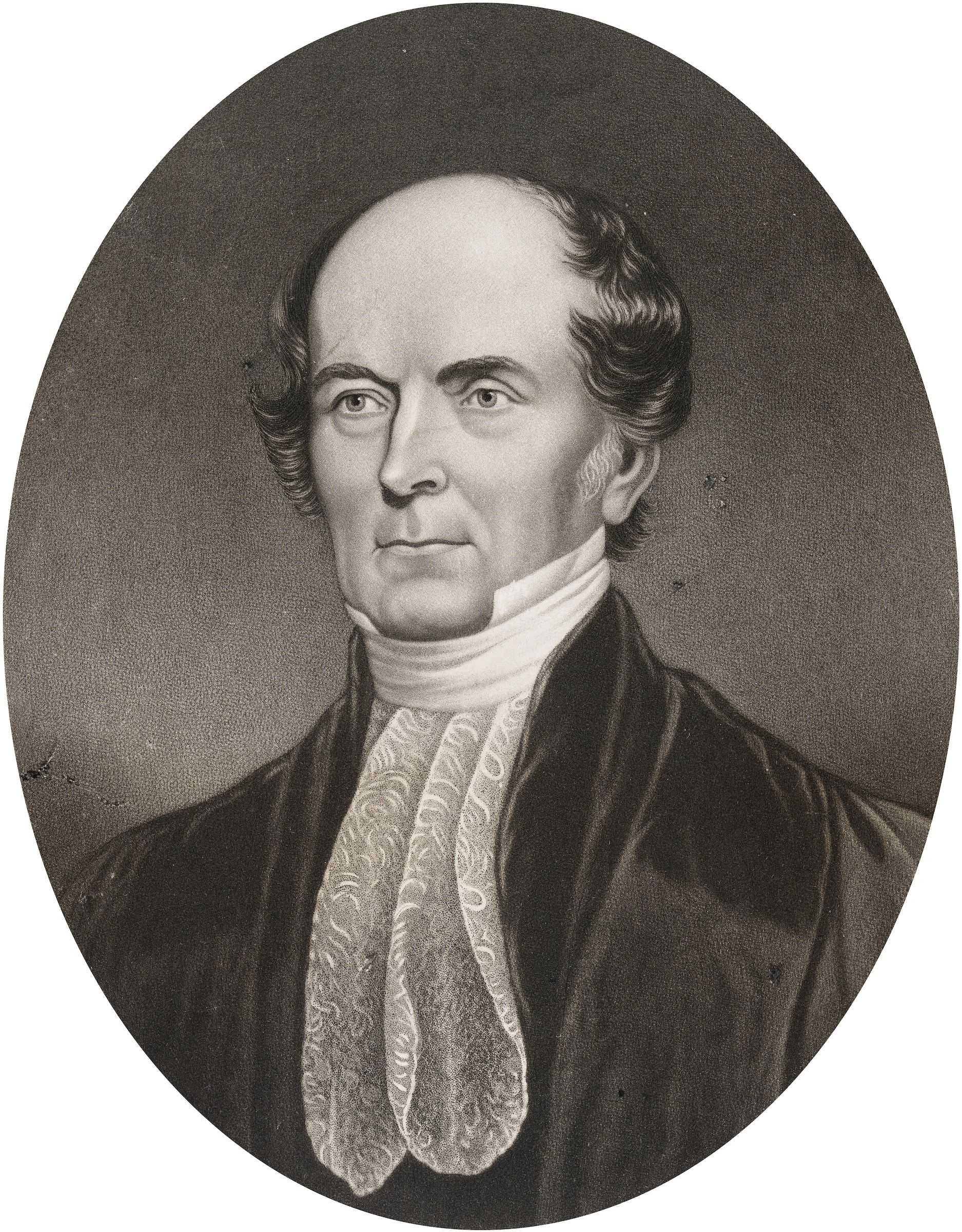Automatic language translation
Our website uses an automatic service to translate our content into different languages. These translations should be used as a guide only. See our Accessibility page for further information.
1823-1837

Francis Forbes was called to the English Bar in 1812 and served as Chief Justice of Newfoundland from 1816 to 1822. While on leave in London in 1822, he helped the Colonial Office to draft the New South Wales Act 1823 and accepted an appointment as the inaugural Chief Justice of the new Supreme Court. Under the Act, Forbes was also a member of the Legislative Council and had authority to declare draft legislation to be repugnant to the laws of England – effectively a veto. This was destined to mire him in political controversy. Nowhere was this more pronounced than in his conflict with Governor Darling over revocable licensing provisions of the Newspaper Regulating Act. Forbes was renowned for his pragmatism and even temperament, but his heavy workload and incessant conflicts with Darling and others caused his health to suffer. Forbes was knighted in April 1837 and retired on 1 July 1837. He died on 8 November 1841 at Leitrim Lodge in Newtown, Sydney.
Forbes was born in 1784. Educated at Bermuda, when nineteen he went to England and entered Lincoln's Inn. Interruptions through journeyings home deferred his call to the Bar until 1812 and then became a Crown Law Officer at Bermuda. By 1816 Forbes sought advancement. The Colonial Office could offer him nothing better in the Caribbean, but invited him to be Chief Justice of Newfoundland. The invitation accepted, Forbes was sworn in at St. John's in July 1816. He married Amelia Sohia (nee Grant) in 1813.
In 1822 while convalescing in England his destiny was changed by the offer that he become foundation Judge of the Supreme Court of New South Wales. Forbes accepted and helped to draft the Bill for 4 Geo. IV c. 96 before his departure. He arrived in Sydney in March 1824 and he opened the new court on 17 May. He was in a peculiar position of power. Not only was he sole judge, subject only to appellate powers vested in the Governor, but he was an official member of the Executive and Legislative Councils, and all colonial legislation had to bear his certificate that it was not repugnant to the laws of England.
John Stephen was appointed as first Puisne Judge in 1825 and James Dowling as a second Puisne in 1827. But even with that aid the bench could not cope with its work.
Forbes had been indisposed by serious bouts of illness on several occasions from 1826 but he worked on regardless until, in 1834, feeling that he could continue no further, he secured a year's leave to be spent in England. He retired in 1837 and was honoured with a Knighthood the same year. He died at his home "Leitrim Lodge", Newtown, on 8 November 1841.
As the colony's only judge, many of the judgments Forbes delivered established legal precedents which remain relevant today. He said that "It has been my incessant endeavour, ever since I have been in this Colony to raise the character of the Supreme Court in the opinion and confidence of the colonists; that I have strained hard to preserve its independence and to prevent its being supposed to be capable of being influenced".
Last updated: